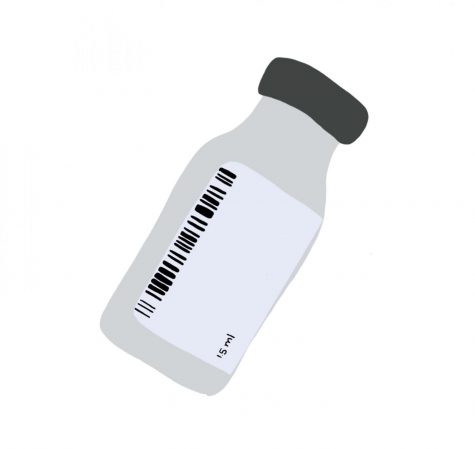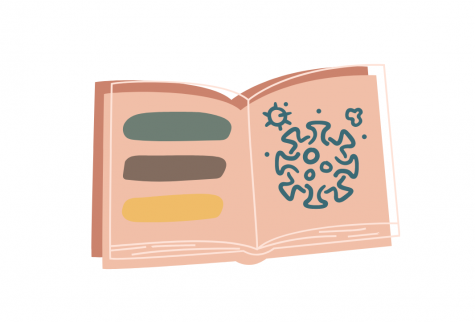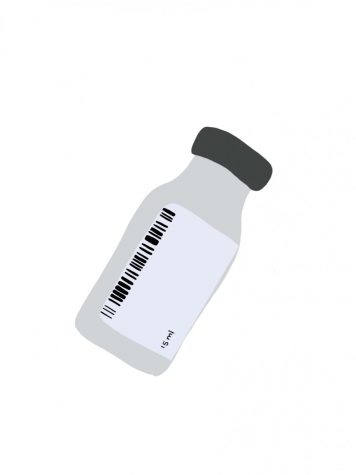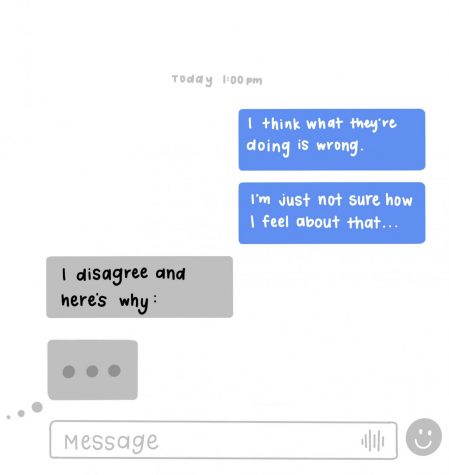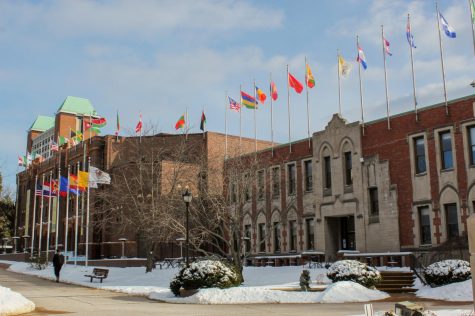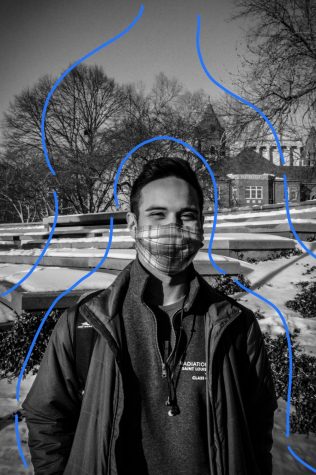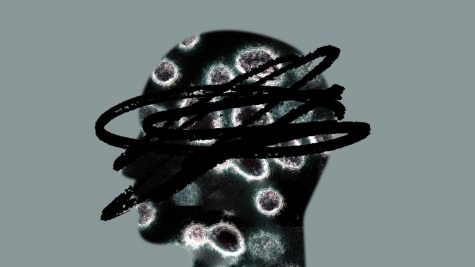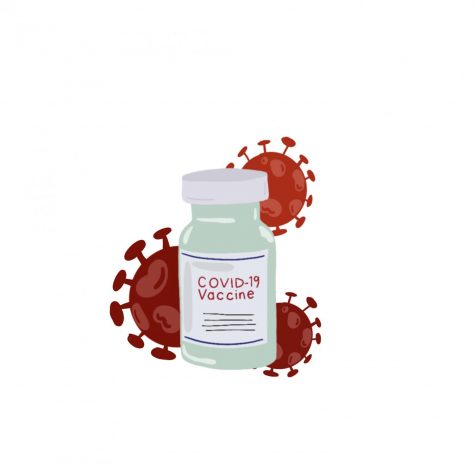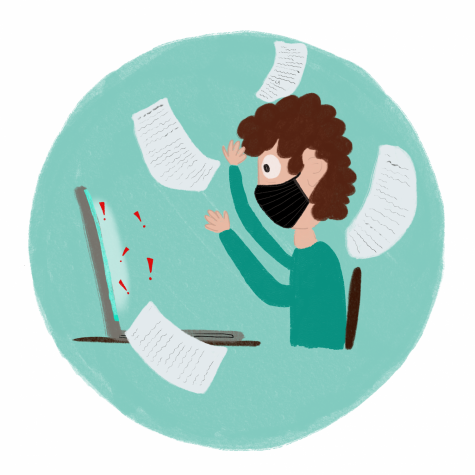Are You Still Committed?
Students, Faculty and Staff were Asked to Take the Safety Pledge On Their Return to Campus.
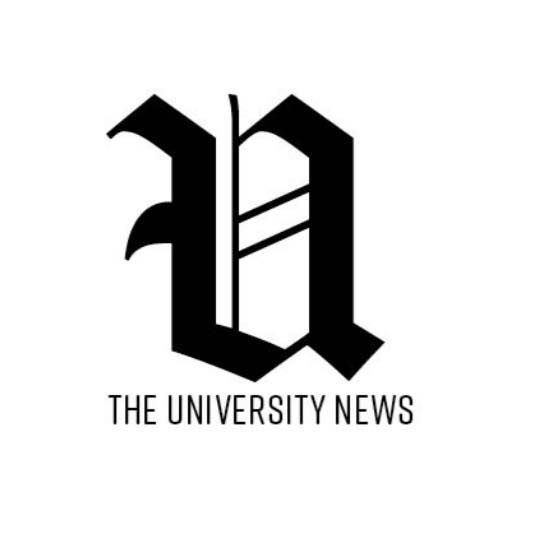
We are a month into the fall semester. We have been nasal swabbed, zoomed out in class (yes, I did it again), vigorously questioned and have experienced the emotional roller coaster of returning to college in the middle of a global pandemic. Being back on campus and social distancing at the same time is not an easy task, especially for freshmen who come in with high hopes and expectations for the next chapter of their lives. However, it is time that we collectively remind ourselves of the ugly truth of COVID-19, and of the commitment we signed at the start of the school year.
The commitment outlines basic public health safety measures, and restrictions that follow the University, local, state and federal guidelines. Some of the directives include:
- Following the direction of medical professionals and health officials
- Completing a daily symptom tracker
Frequent hand-washing
- Wearing a mask in public at all times
- Maintaining social distance
- Avoiding all social gatherings
Everyone, students and staff alike, was required to take the pledge to show their support and take responsibility for keeping the campus open this semester. The repercussions of not taking the pledge include outright dismissal from campus.
“I will practice social distancing of at least six feet between myself and anyone else when I am on and off campus to keep myself and others safe and healthy. This includes not participating in private, off-campus events or gatherings where social distancing is not practiced.”
In addition to creating safety protocols for in-person learning, administrators are putting in a lot of faith in students to minimize the spread of the coronavirus on campus. In response to UNC-Chapel Hill’s suspension of in-person instruction, interim Provost Lewis and interim Vice President Lohe issued a joint statement reiterating the responsibility of all students to follow public health guidelines. It is clear in their delivery that they lack confidence in their abilities to prevent the student behavior that spreads the virus.
And I cannot blame them. I have seen Snapchat footage and posts on social media of my college-aged peers enjoying their off-campus group gatherings. It’s clear that, no matter how strong their delivery on expectations for all students is, the administration simply can’t monitor and enforce student behaviors off of the school’s premises. The only thing administrators can count on is trusting students to follow the mandatory pledge they distributed at the start of the year.
What about Peer Accountability?
In addition to doing our individual part, we pledged to comply with the interim face mask policy. In section six of the policy, we are encouraged to anonymously report any noncompliance to the SLU hotline. Theoretically, this move makes sense as students are the ones that interact with each other the most, even with distance. It is through students that administrators can gain an insight on any potential virus hotspot on campus. Additionally, providing an anonymous way for students to report is certainly a good thing for their privacy.
However, it is unreasonable for the university to expect us to become coronavirus whistleblowers. In reality, the practice of anonymous reporting might not even be as effective as it seems. We have seen the dynamics unfold as people who anonymously snitched on about noncompliant business practices received threats and harassments in the state of Washington. Locally, we have also seen a disregard for privacy when St. Louis Mayor Krewson released the list of addresses and names of protesters who called for police reform in June. While I don’t mean to insinuate that SLU will leak students’ information. In a world where government officials and higher-ups fail to handle conflicts, how can we trust that our institution is any better?
Is It A Liability Waiver for SLU?
At the end of the day, we are an urban school. Even if we all do our part to keep the number from rising, we are not immune to St. Louis City, and St. Louis is not immune to our presence. As I came back and dissected the directives written in the document, I feel like the commitment is undermining the impact of our school to the community beyond campus. The virus doesn’t stop at the gate of the campus. It is unrealistic to assume that compliance from the students will absolutely prevent the spread of the virus.
The commitment pushes me into a false reassurance—as long as I wear my mask, wash my hands and remain six feet away from others, I will not have the virus. Each of us signed a social contract with SLU upon returning to school. However, it is nowhere written in the contract that outlines the risk of our presence to the campus and the community beyond. In interim Provost Lewis and interim Vice President Lohe’s letter to urge for more signatures on the pledge, they also painted an alternative reality where “you [students] bring the virus back to our campus, and it spreads.” It almost sounds like students are the sole vectors of the virus as the university has done the best they can.
Although noncompliance to safety guidelines can explain the potential spread, I think it is naive of the university to not take risky behaviors into account when they came up with the reopening plan. Are they more concerned about our safety or our safety while on campus? And what if the SLU became a potential hotspot, would it reflect back to our collective failure as students to follow the rules? We signed a contract with SLU, where is the contract of SLU to St. Louis residents? Do the locals feel safe as universities in the area, including SLU, reopen and bring people back to campus?
At the end of the day, we are trusting SLU with our health and safety, and the administration is trusting us with theirs. So fellow friends, the future is now in our hands (and remember to wash them too).
Your donation will support the student journalists of Saint Louis University. Your contribution will help us cover our annual website hosting costs.


